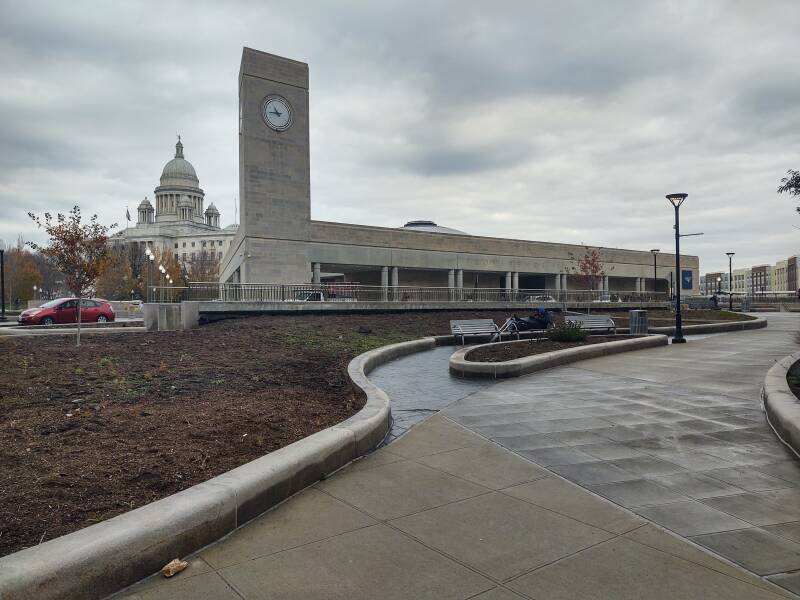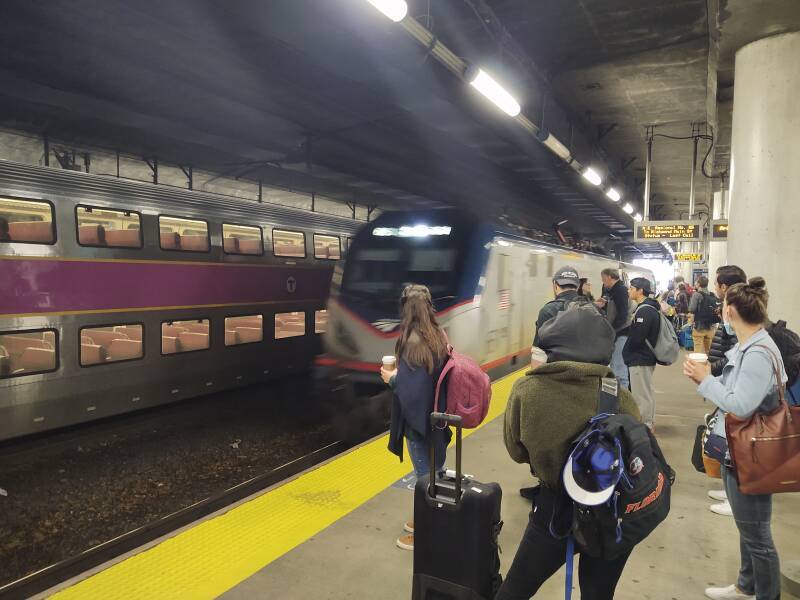
One Last Mystery in Providence
A Remaining Providence Mystery
In the early 2010s some undergraduate students in the history and mathematics programs at Brown University began a project in which they examined the "Roger Williams Mystery Book", held at Brown's John Carter Brown Library.
The book's title page is missing and so it just bears a subtitle, "An Essay Concerning the Reconciling of Differences Among Christians". The margins of its pages are covered in a form of shorthand writing. The book has long been suspected to have belonged to Williams, with the shorthand written by him in the mid-1600s.
Williams had worked as a law clerk while a teenager in England in the 1620s, shortly before he went to Massachusetts. There were several incompatible systems of shorthand at that time. As a law clerk, Williams would have been familiar with multiple ones. Also, shorthand users would modify their system with their own personalized extensions, symbols for sounds, syllables, words, and complete phrases.
The annotator wrote some words in conventional longhand, personal names and place names, although they would still be a challenge to read as they were in 17th century cursive script. That led to their first discovery, that the annotations formed three very different section — a geographical text, a medical text, and some original notes.
The next discovery was that the shorthand additions were written by Roger Williams.
Then, referring to Brown's collection, they discovered that the first section, the geographical text, was based on Cosmographie in Four Books: Containing the Chorographie and Historie of the Whole World, and All the Principal Kingdoms, Provinces, Seas and Illes Thereof, a 1652 geographical text by Peter Heylyn describing the world as it was known in 1652.
That's a set of four volumes with a total of 1,000 pages of text, so what Williams had done was to use a convenient religious text that he owned as a 200-page notebook. He wanted a condensed version of a then-new geographical text that he could borrow but probably not afford. Plus a similar condensation of a medical text that has not yet been identified. Plus a concluding 20-page section of his notes on, well, no one knows yet. Marginalia galore.
The plan is to use the Heylyn text to better figure out the personalized shorthand system that Williams used. Then they will apply that to recover his summary of the medical text and his personal notes.
The customized shorthand is really a form of a monoalphabetic substitution cipher, a long-winded name for a very weak method of encryption. Poe did an excellent job of explaining how to break such a system in his story "The Gold Bug", immediately after explaining the chemistry of early 19th century invisible inks.
The problem is made much more difficult because the cleartext is not the Heylyn book that they have, instead it's Williams' interpretation and summary of it. It's not a known plaintext situation, which would be relatively straightforward. Nor is it even a partial known plaintext situation, which would be, well, partially straightforward. The rest of the project will be quite challenging!
Leaving Providence
It was time for me to leave Providence. I would be traveling on Amtrak's Northeast Regional train to New York.

It runs roughly every hour through the day. Here comes my train!
